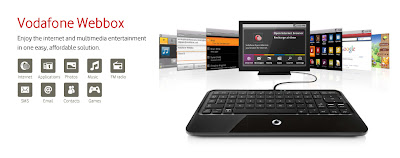Five Ways Early Adopters Have Been Screwed (Updated)




Apple
executives have hinted that an early price drop for the $500-and-up ( Kshs 35K
and above) iPad may be in the works. A Credit Suisse analyst who reportedly met
with Apple executives learned that Apple may slash the price of the iPad if
demand for the new device is low.
For eager
iPad early adopters that could turn out to be a big iBummer, but then again,
the news of an iPad price drop should not be coming as a shock. Most technology
companies have a history of screwing over their first batch of customers with
price cuts and early upgrades, and Apple is no exception. In fact, Apple was
behind one of the most famous early adopter scandals of all time.
So before
you go spending your money on the first edition of the iPad, let's take a quick
look back at just a few times when early adopters were left out in the cold by
buying technology products before anyone else.
iPhone
Before
the iPad price cut rumor, there was the infamous price drop on the original
iPhone. The original Jesus phone launched to critical and popular acclaim in
the summer of 2007, with a 4GB model for $500 and an 8GB model for $600. Sales
were strong with customers standing in line for hours to get their hands on the
device, and iPhones were quickly sold out across the U.S. But by September
Apple decided it wanted to sell more devices, so the company dropped the price
of the 8GB iPhone by $200 and discontinued the 4GB model altogether. The launch
of iPhone 4S saw many pay the price of being early adopters with the wrong
grip. But how much price change happens in Kenya? I bet Orange will again be
the sole provider in Kenya. What are other companies like Safaricom doing with hauwei,
we need some competition.
The end
result was that not only did some customers pay more money to get the iPhone,
but those initial customers who bought the 4GB iPhone paid a premium for a
piece of technology that became obsolete just three months after purchasing it.
"When
someone tells you that what you just bought from them isn't really worth the
price you paid and they don't even offer it anymore, you felt cheated,"
one dissatisfied iPhone customer told PC World shortly after Apple announced
the iPhone price drop in 2007.
To make
up for it, Apple offered a $100 credit to eligible iPhone early adopters, which
went a long way to quell the customer outrage. However, at least one lawsuit
was filed against Apple as a result of the company's abnormally quick price
cut.
Blu-Ray
This yet
to hit our shores and am very sure it even costs more to rent a movie on this
format. Anyone who's old enough to remember the VHS-Betamax format wars knew
the HD DVD versus Blu-ray format war wasn't going to be pretty for early
adopters. By early 2008, Blu-ray had won and HD DVD customers were left holding
the bag, but it wasn't all fun and giggles for Blu-ray users either. You see HD
DVD players came with some great features like picture-in-picture, storage
capacity and an Internet connection. But those features didn't hit Blu-ray
players until 2007 and 2008 with the minimum Blu-ray disc requirements and BD
Live, Blu-ray's Internet connected features. As far as I am concerned optical
disks are dead hence those that found themselves with them Blue Rays and HD DVD
player are at a big loss.
And guess
what happened? Most of those early Blu-ray units couldn't be upgraded to the
new software. Well, there was one device that would accept the upgrade: Sony's
PlayStation 3. But anyone who bought a Pioneer, Samsung, or Panasonic device
before then, while still able to play Blu-ray discs, was left out of the BD
Live party. And just to add salt to the wound, Beta News reported that BD Live
developers had this to say about Blu-ray 1.0 adopters: "They knew what they
were getting into." Ouch.
Tivo Down Under
Australian
Tivo early adopters got a rude awakening after Tivo's 2008 introduction to the
Land Down Under. When Tivo first launched in Australia it had a limited hard
drive and networking features and you couldn't skip over ads, according to
Australian PC Authority. The device cost $700 Australian dollars (AUD), plus
you needed to get an $80 AUD Wi-Fi adapter, and at the time Tivo promised
Australian users they would be able to purchase an upgrade in the coming months
for "tens of dollars." The coming upgrade was supposed to allow you
to archive recordings, and access music, videos and photos from computers in
your home network.
When the
upgrade finally did come it cost a whopping $199, meaning early Tivo adopters
paid close to $1000 AUD for their device.
Wal-Mart
Music Downloads
Wal-Mart
launched its music download service in 2004, and like most digital downloads
during that time the music came with DRM copy protection. By 2008, Wal-Mart
decided to drop DRM, but all those customers who had been loyally buying up
DRM-filled music loaded were told that after October 9, 2008 Wal-Mart was
shutting down its DRM servers that made it possible for you to transfer your
music between devices. So consumers had a choice: burn all your purchased music
onto a CD or eventually lose it. Of course, Wal-Mart wasn't the only company to
shaft early adopters of digital music; Microsoft has done it with its
PlaysForSure (now that's irony) licensing servers, and Yahoo did with its
Unlimited Music Store. Apple in 2007 dropped DRM from its iTunes music store,
but you can still hold on to your music to this day and Apple will also let you
upgrade your DRM music to DRM-free for a nominal fee.
Kindle 2 and DX
Some
people probably thought they were being so smart by waiting for the second
iteration of the Kindle to come out before jumping into the e-reader gadget
game. When the Kindle 2 was first introduced in February, it seemed like the
right time to purchase. The second Kindle had new features like annotation and
adjustable text sizes, as well a slimmer profile and better physical controls.
It looked like the perfect time to buy until three months later when Amazon
announced the larger-sized Kindle DX. Some Kindle 2 early adopters felt
betrayed, and were upset that the company didn't even mention the Kindle DX was
coming. I wonder how they felt in July, just five months after the Kindle 2 was
launched, when Amazon knocked $60 off the price of the Kindle 2. I guess early
adopters of the Kindle 2 just couldn't catch a break in 2009.
Nokia Lumia
Nokia has
had to pay American buyers $100 for a software fault that was going to cost the
company a lot more than just sales. This is sad for Nokia given the fact that
the company is selling the phone at a loss and it is benching on the Llumia
product line to get its footing in the Smart Phone Market,
So unless
you're an absolute technology nut, and understand the risks going in, it just
doesn't pay to be part of that first crowd of gadget buyers. And this time with
so many rumors about an iPad price drop, and a clear history of price drops
with the iPhone, it will be hard to feel sorry for early adopters if the iPad
has a super cheap price tag by the summer.
Local
examples include GTV, SMART TV, Safaricom 21.1Mbps, Oxygen TV, Popote Wireless
and many more


Comments
Post a Comment
Be sure to check back again because I do make every effort to reply to your comments here. Karibu :)